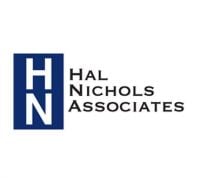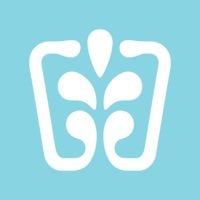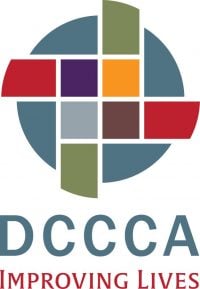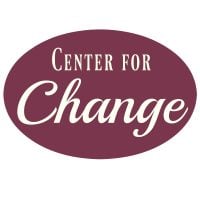University of Kansas Hospital
Drug Rehab Center in Kansas City, Kansas
- Mental Health
- Dual Diagnosis
The University of Kansas Hospital provides comprehensive and personalized treatment for dual diagnosis, mental health, and eating disorders through various methods, while honoring multiple insurance plans and offering flexible payment options.
About University of Kansas Hospital in Kansas
The University of Kansas Hospital in Kansas City, KS is a specialized treatment center for those suffering from Dual Diagnosis and Mental Health issues, offering a range of levels of care from Inpatient, to Dual-Diagnosis services. The center offers a range of treatments tailored to individual needs, such as Cognitive Behavioral Treatment (CBT), Dialectical Behavioral Therapy (DBT), Family Therapy, Group Therapy, Trauma Therapy, Individual Therapy, Experiential Therapy, Nicotine Replacement Therapy (NRT) and Eating Disorder Treatment. In addition, they provide Electroconvulsive Therapy to those who may benefit from it.
The University of Kansas Hospital prides themselves on providing high-quality care and customer service which is tailored to each individual’s needs. They offer a supportive, recovery-focused environment, with a multi-disciplinary approach to diagnosis, treatment and aftercare. Their staff is knowledgeable in their fields and strive to ensure that their patients receive the most comprehensive and personalized care available. In addition, the hospital accepts Private Health Insurance and has a range of outreach and prevention programs to ensure that all members of the community have access to the best healthcare possible.
Genders
Ages
Modality
Additional
Conditions and Issues Treated
A drug rehab center that uses Dual Diagnosis is more likely to be successful in rehabilitating a person. Dual diagnosis helps to identify and treat any co-occurring disorders. It is essential to screen for both addiction and any untreated mental health issues. A dual diagnosis gives rehab the means to treat addiction while restoring mental and emotional health.
About 70% of patients with drug addiction have at least one other psychiatric diagnosis. Fortunately, dual diagnosis treatment is a proven model that has been highly effective.
Levels of Care Offered
This center offers a variety of custom treatment tailored to individual recovery. Currently available are Dual-Diagnosis, Inpatient, with additional therapies available as listed below.
Inpatient rehab means you live there while your addiction or co-occurring disorder is treated. Prescribed medications are used along with counseling.
This type of rehabilitation provides a drug-free environment for people who struggle with chronic/long-term addiction (or their own home). Jobs or school can be put on hold until after the stay to focus solely on recovery.
Therapies & Programs
During individual therapy at University of Kansas Hospital in , the person in recovery meets with a therapist one on one to go over their situation and learn from past mistakes. The counselor or therapist will use this time to address the causes of addiction, triggers, and any mental issue or dual diagnosis. They will also address aftercare plans, giving them the best chances of long-term sobriety.
This therapeutic process is very intense and challenging to go through. Some clients may find it easier to open up with someone apart from their family or loved ones who understand their struggles and experience with addiction.
Family therapy is designed to help addicts get clean and sober by using what they love the most; their family. Most drug treatment centers make it mandatory that the addict’s family attend therapy sessions, which is great because having everyone there to support them makes it much easier for them to get clean. Not only are they surrounded by people who want them to get better, but everyone is there because they want the best for them, not because they feel like they have to be.
Drug addicts are often surrounded by resentful or uneducated family members who would, at times, rather see them stay addicted because it makes their own lives easier. Sometimes they don’t understand what the addiction is or how they play a part in it. They know that during and after the addict’s sobriety journey, they will face challenges and changes that they aren’t sure how to handle. This can be very tough for an addict to go through on their own, which is why it’s so important that they have the support of their family. Just because someone is an addict does not mean that they don’t deserve the love and support of those around them.
Addicts in Kansas City, KS can find support in group therapy at University of Kansas Hospital by finding peers who understand their situation and being held accountable. They also learn to develop faith, understanding, and insight into their addiction through shared conversations.
Group Therapy is employed by drug treatment centers to provide the recovering addict with a platform to talk about their feelings and experiences. It also provides for an opportunity to learn from other addicts who have successfully overcome their addiction. It is recommended that all group members be recovering addicts for this type of therapy to work.
Trauma therapy allows people who struggled with a past trauma to face the situation and learn from it. Many people go through traumatic events at an early age that later leads them into addiction as adults. By addressing this issue during treatment at University of Kansas Hospital in [/type], you can move forward with your recovery process and take back control of your sober future, too!
Traumas are one of the most common causes of psychological disorders such as Addiction Disorder. It’s often found among those diagnosed with Addictive Disorders because traumatized individuals have strong emotions or thoughts related to their traumas, leading to addictive behaviors.
Dialectical behavior therapy (DBT) is a cognitive-behavioral therapy that focuses on eliminating specific negative thoughts, such as suicidal thoughts. These negative thoughts can potentially lead to an individual inflicting self-harm. It helps treat patients exhibiting uncontrollable emotions, intense mood swings, and borderline personality disorders.
The term “Dialectic” means the integration of opposites. In substance abuse, DBT refers to accepting the patient’s addiction and working to change their thoughts and behavior. It improves life skills such as controlling intense emotions without reacting impulsively, resolving interpersonal conflicts effectively, and promoting awareness about self and others.
Cognitive Behavioral Therapy (CBT) helps addicts comprehend the causes of their substance abuse and the consequences that follow. The treatment’s goal is to help addicts gain self-control and maintain abstinence from drugs and alcohol over the long term. Through CBT, clients learn to recognize and avoid high-risk situations and cope with challenging situations when they arise.
Patient Experience
Experiential Therapy at University of Kansas Hospital
Experiential therapy is a type of treatment involving immediate, intense experiences designed to manage addiction. Experiential therapy is beneficial for:
- People who are seeking to overcome an addiction but have difficulty focusing on treatment goals
- People with short attention spans due to high levels of stress or difficulty concentrating
- People who are afraid of engaging in treatment due to negative past experiences
Payment Options Accepted
For specific insurance or payment methods please contact us.
Is your insurance accepted?
Ask an expert, call (888) 674-0062
Additional Details
Specifics, location, and helpful extra information.
Kansas City, Kansas 66103 Phone Number(913) 588-5000 Meta DetailsUpdated November 25, 2023
Staff Verified
University of Kansas Hospital Patient Reviews
There are no reviews yet. Be the first one to write one.
Kansas City, Kansas Addiction Information
About 42% of adults in Kansas have tried an illicit drug at some point in their lives. 12.4% of the state population uses illegal drugs and 4.5% abuse alcohol in a given year. 15.16% of all deaths in Kansas between 2008 and 2017 were caused by either drugs or alcohol.
Every day in Kansas City, 6 people die from a drug overdose. In 2016, there were 1,521 deaths due to drug overdoses in the city. According to the NSDUH, 5.43% of adults reported using illicit drugs. Addiction is a chronic, relapsing brain disease that is characterized by harmful consequences. Common treatment options in Kansas City, KS, include inpatient or residential treatment, outpatient treatment, and 12-step programs.
Treatment in Nearby Cities
- Girard, KS (107.7 mi.)
- Halstead, KS (173.0 mi.)
- Mission, KS (3.2 mi.)
- Larned, KS (250.0 mi.)
- Osawatomie, KS (42.9 mi.)
Centers near University of Kansas Hospital




The facility name, logo and brand are the property and registered trademarks of University of Kansas Hospital, and are being used for identification and informational purposes only. Use of these names, logos and brands shall not imply endorsement. RehabNow.org is not affiliated with or sponsored by University of Kansas Hospital.




